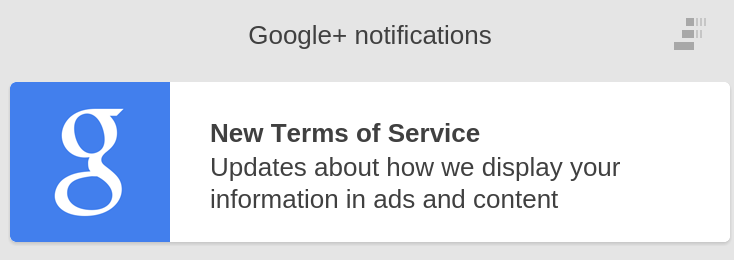Here’s the difference between Facebook and Google
 Facebook and Google both have their admirers, their critics, and people who might fall into either camp depending on their mood. Both companies provide some really valuable services: Facebook offers users around the world a way to connect with friends and family; easily share photos, videos, articles, recipes, and more; chat or video call one another; and much more. Google offers all of this in Google+, but is known more widely for products and services like Search, Gmail, Google Drive, and Android.
Facebook and Google both have their admirers, their critics, and people who might fall into either camp depending on their mood. Both companies provide some really valuable services: Facebook offers users around the world a way to connect with friends and family; easily share photos, videos, articles, recipes, and more; chat or video call one another; and much more. Google offers all of this in Google+, but is known more widely for products and services like Search, Gmail, Google Drive, and Android.
While both companies are truly doing great and innovative things, they ultimately need to make money. As it turns out, advertising provides the main source of revenue for both companies, and many analysts therefore consider the companies to be primarily in the business of selling ads – regardless of how many other awesome things they do.
So far both companies sound pretty similar. But they’re not.
As anyone who has been on Facebook for several years knows, Facebook is notoriously bad about changing the privacy settings of its users, usually with no or little notification. While Facebook has at least put some effort into making its privacy settings easier for users to understand, they still remain – for the most part – convoluted and confusing. Most people on Facebook have, at some point, inadvertently shared things publicly that they thought were private, and many people have no idea that they continue to do this today.
Particularly egregious is when people started showing up in advertisements on Facebook, without giving their permission or being compensated. You’ve probably seen a sponsored post from Pepsi or NBC or Trojan condoms, with friends of yours who liked those pages showing up under the ads – presumably a part of those ads themselves.
This type of advertising is something that Facebook opted everyone in to, and it takes a little bit of digging around in your privacy settings to disable. Granted, since Facebook does provide a valuable service for free, and advertising is one of the only ways it can make money, some people don’t mind appearing in these ads. But it remains a disturbing fact that everyone was opted in to this, and Facebook never really provided explicit, clear instructions on how to opt out – users had to figure it out for themselves.
Google started doing something similar today. But here’s the difference: Google was clear and straightforward in explaining what it was doing, and it gave users the ability to quickly and easily opt out.
Anyone who uses the Chrome browser probably noticed the notification about Google’s updated Terms of Service that appeared on the New Tab page today. Additionally, anyone who visits Google+ (or uses any Google service, really) probably noticed the alert that appeared in the notifications panel (pictured above). In other words, Google was being very proactive in notifying its users about its new terms.
Additionally, when clicking the link to learn more, users are taken to a page that quickly explains what’s changing in easy-to-understand, plain English:
Feedback from people you know can save you time and improve results for you and your friends across all Google services, including Search, Maps, Play and in advertising. For example, your friends might see that you rated an album 4 stars on the band’s Google Play page. And the +1 you gave your favorite local bakery could be included in an ad that the bakery runs through Google. We call these recommendations shared endorsements …
Every step of the way, Google emphasizes that users are still in control, and they can opt out of shared endorsements at any time with no penalty. While Facebook just started doing this without really telling anyone, Google made sure everyone knew exactly what was happening and how to not participate.
And that is the difference between Facebook and Google. One company doesn’t really believe in online privacy, while the other tries to make it as easy to understand and control as possible. One forces its users into the public sphere without much guidance, while the other values openness and clear communication.
I truly believe that Google’s approach to this speaks volumes about its company values. While I still personally opted out, I feel more confident using Google services, knowing that my privacy is still respected. Yes, I still use Facebook, too – but that’s just because everyone else I know does, too. I’m just a bit more careful about what I post there.


